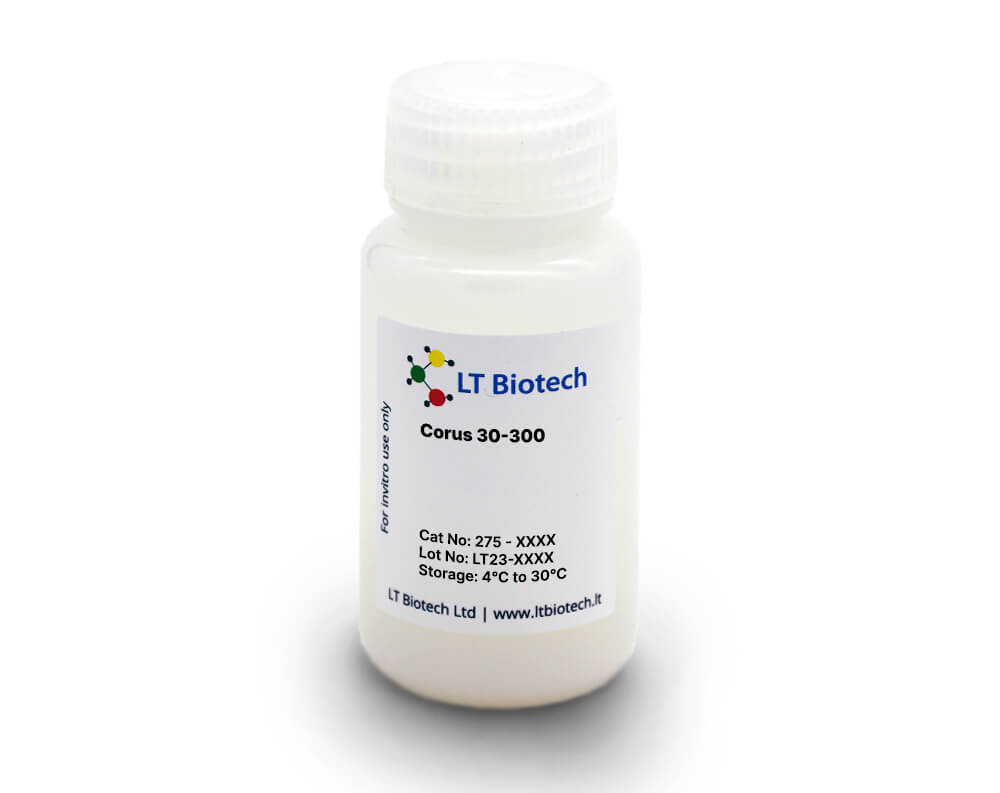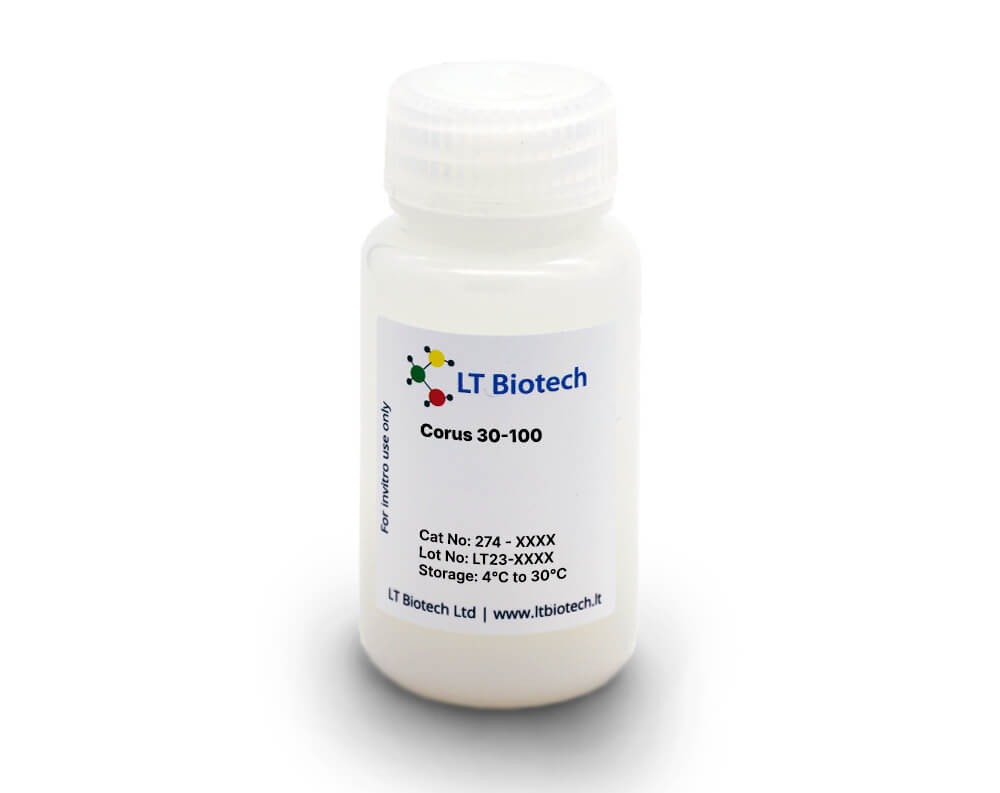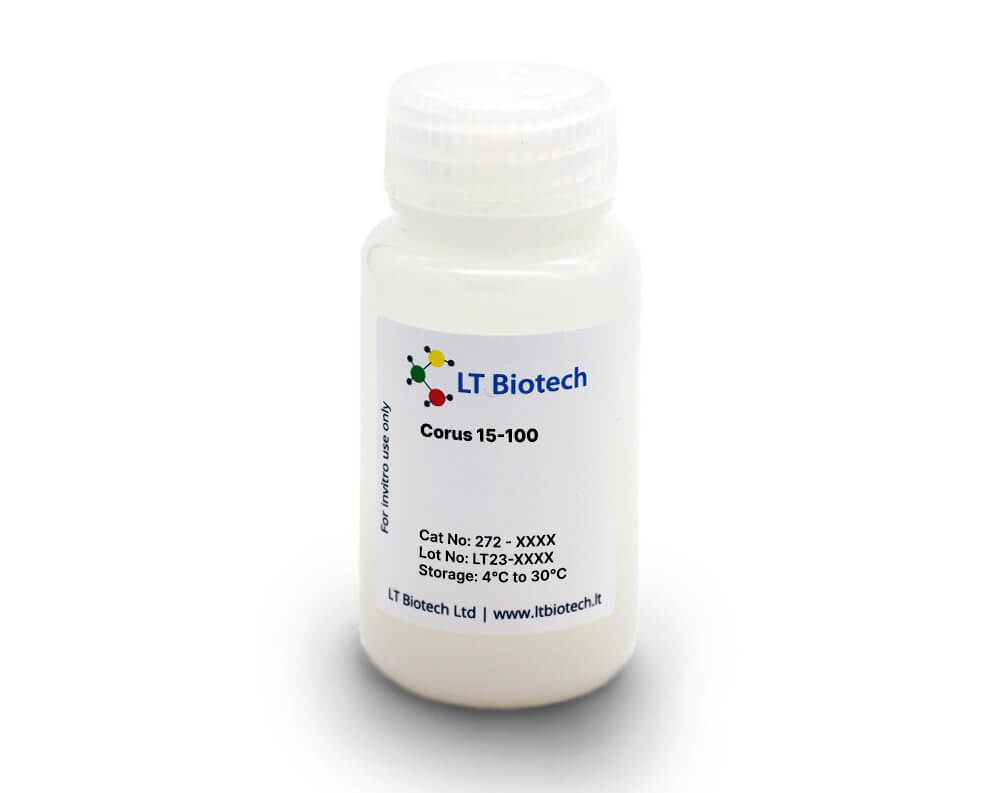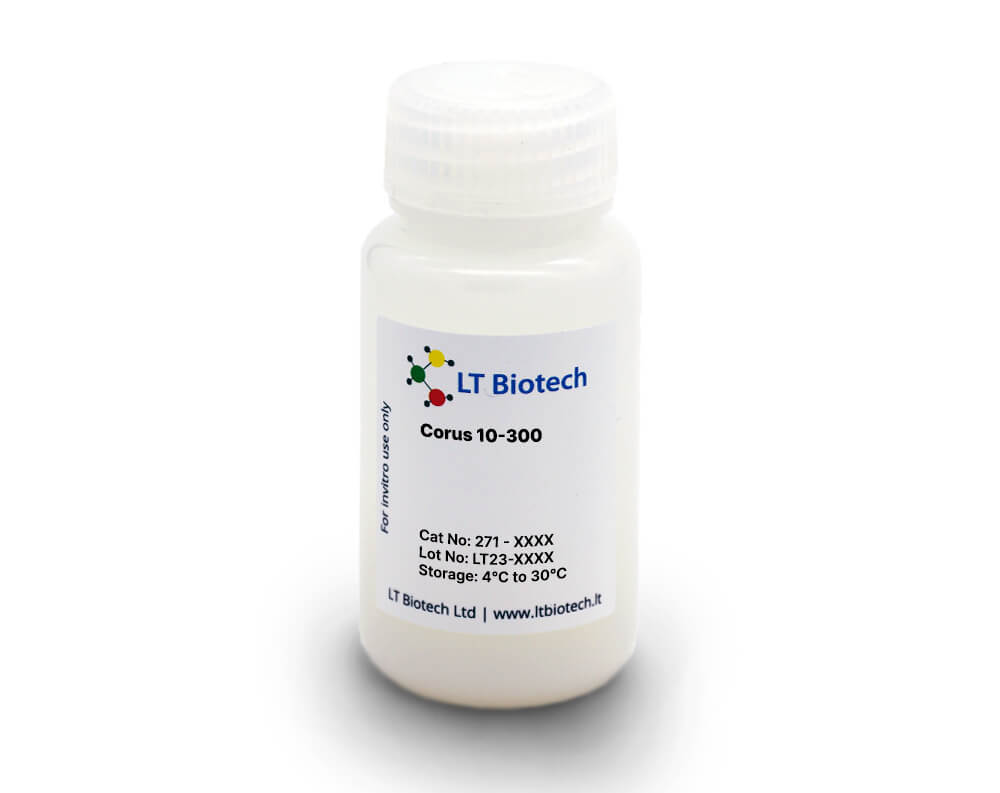Reverse phase chromatography
Corus 30-300
No.
Add to order
Corus 30-100
No.
Add to order
Corus 15-300
No.
Add to order
Corus 15-100
No.
Add to order
Corus 10-300
No.
Add to order
Corus 10-100
No.
Add to order
Reversed phase chromatography is often considered the most common liquid chromatography method. It relies on the principle and application of non-polar interaction between the sample and the non-polar stationary phase/resin + polar mobile/liquid phase, allowing for separation according to the polarity of the targeted molecule.
The non-polar stationary phases define such chromatography as “reversed”. The term “reversed” refers to the opposite of “normal” chromatography, whose definition is using a non-polar mobile phase with a polar stationary phase.
While it was the first to be invented, “normal” chromatography is much less common today than the “reversed” one, in part due to issues with the durability of the normal phase chromatography column.
Reversed phase chromatography can be used for the partition from a mixed sample of a large variety of compounds and small molecules, for example, proteins, peptides, amino acids, biopolymers, carbohydrates, fatty acids, steroids, and other lipids. The technique is used both in laboratory scale and industry scale, and for a variety of applications, including impurity/pollutant detection, separation of active drugs, purification of proteins, peptides, or metabolic products.
The process of reversed phase chromatographies follows similar steps to other chromatography techniques:
- The column is prepared (or “conditioned”) with the mobile phase solvent.
- The sample of protein (or other molecules) is applied to the column and bound to the chromatography resin.
- The elution is done by applying increasing concentrations of the liquid phase. The most polar compounds elute first with the most non-polar compounds eluting last.
- The column is “cleaned” of any residue still bound to the matrix with organic solvents and can be later on re-used.
The reverse chromatography column base is often made of silica as a default template but can be made of polymers as well.
Silica columns can offer a variety of stationary phases, with various lengths of hydrocarbon chains offering different polarity options, generally ranging from C1 to C18 or even C30. Phenyl base column phases are also a possibility, ranging from simple phenyl or biphenyl to PFP (Pentafluorophenyl).
Polymer columns are often used in case of analyzing compounds under extreme pH conditions, or for large molecular weight biomolecules.
The liquid phase is most of the time a mixture of water and another chemical, for example, methanol, THF, 2-propanol (isopropyl alcohol), or acetonitrile.
One limitation of reverse phase chromatography is the potential loss of protein functionality, due to denaturation. The high concentration of organic solvent required for the elution step can damage the three-dimensional structure of the proteins. This can be especially problematic for the extraction of potentially fragile active proteins like antibodies or enzymes.
Choosing the right eluant and column will depend on the nature of the sample and the intent behind the purification. Our experts can help you determine the best possible options, as well as the different trade-offs between them.
Further analyses can be done on the purified sample, for example with UV, fluorescence, or mass spectroscopy. In case of concerns about the protein activity/functionality from organic solvents, tests to measure it could be added as well.
Further purification with other chromatographic methods is also possible if this step is not enough to obtain the adequate purity needed, ideally based on a different principle, like affinity chromatography, size-exclusion chromatography, ion-exchange chromatography, or even dialysis.







